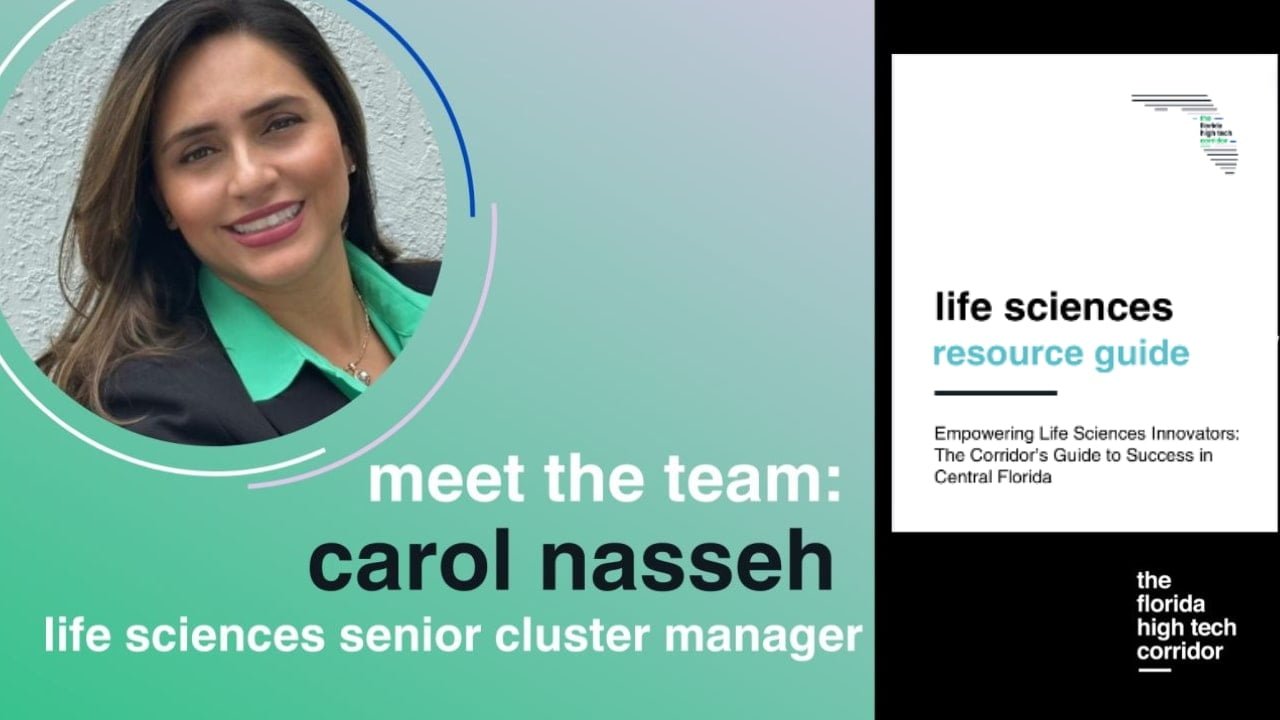ORLANDO — With its growing population, diverse communities and quickly expanding economy, Florida’s life sciences industry has benefited from decades of investment and expansion. Central Florida, particularly, has seen significant growth in the sector, with more than 150,000 jobs and a growing talent pipeline driving both startups and institutional firms forward.
Over more than two decades, Florida has invested in life sciences and health, both to meet the needs of its nearly 23 million residents but to grow its economy to become the 14th largest in the world.
Through its public research universities — particularly the University of Florida, University of South Florida and University of Central Florida, the three institutional pillars of the Florida High Tech Corridor — life sciences research makes up significant portions of the nearly $3 billion in annual research expenditures.
The private sector is thriving too, from large firms to startups working to bring new ideas to market. Florida is home to the second largest medical device manufacturing industry in the U.S., second largest pharmaceuticals manufacturing industry and fourth largest biotech research and development industry, reports SelectFlorida, the economic development agency for the state. The biopharmaceutical sector had a $64.3 billion economic output in 2022, reports PhRMA.org.
In Central Florida alone, more than 150,000 people work in the life sciences sector and educational institutions — including three of the nation’s most productive universities when it comes to research and innovation — produce more than 20,000 graduates in life sciences and health fields each year.
Central Florida’s bioscience industry is leading in medical advancements on treating drug- resistant breast cancer, battling Alzheimer’s disease, healing diabetic wounds as well as understanding how HIV damages the heart.
“There is a rising number of biotechnology and medical technology companies setting up operations in Central Florida, attracted by the supportive business environment and access to top talent,” said Carol Nasseh, life sciences senior cluster manager at Cenfluence, a program of the Florida High Tech Corridor. “Central Florida’s unique landscape of medical and research and development facilities integrates healthcare for residents and tourists from around the world.”
Some of these institutions driving Central Florida’s growth in life sciences are the University of Central Florida’s College of Medicine, UCF Lake Nona Medical Center, UCF Cancer Center, Nemours Children’s Hospital, Orlando VA Medical Center, University of Florida research facility, Veterans Hospital Administration, SimLEARN National Simulation Center and The Guidewell Innovation Center.
AdventHealth and Orlando Health, are both headquartered in Orlando, an anchored ecosystem of healthcare research and innovation. Both hospitals systems are ranked among Florida’s best hospitals, according to U.S. News & World Report.
Cenfluence has prepared a guide to learn more detail about the entities elevating Central Florida’s life sciences and health sector. Click here to read and download a copy.
About the Florida High Tech Corridor:
The Florida High Tech Corridor (The Corridor) is an initiative of three research universities – the University of Central Florida, the University of South Florida and the University of Florida – created to catalyze an ecosystem that supports the needs and aspirations of innovators who are driving high-tech economic growth in a 23-county region. The Corridor galvanizes a network of economic developers, academic researchers, elected officials and others to meet the needs of entrepreneurs and small businesses, helps businesses navigate available resources and provides direct support through several programs: the Cenfluence industry clustering initiative, matching grants for university research partnerships, and education and coaching for businesses pursuing federal research awards. Learn more at www.floridahightech.com and connect with The Corridor on LinkedIn.

